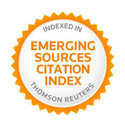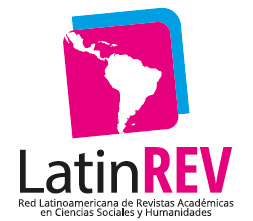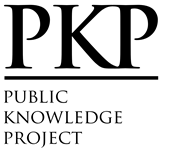Media economics and management
Academic schools and developmental periods
Abstract
Investigation and teaching related to the economic and management aspects of communication have centred on two scientific disciplines: the media economy and the mediabusiness. Presently, the economic and business traditions in media studies have been articulated around two differentiated scientific communities: the critical school and the functional school. This paper expounds upon the historical development of the economy and management of media through the most prominent investigators of its stages of introduction, growth,and maturity. To this end, we consider manuals or monographs of reference produced and disseminated by each of the three traditions: the political economy of communication, the media economy, and the communication business. Finally, we present a brief assessment of the achievements and challenges of the media economics and management as an academic discipline.
Downloads
References
Adorno, Theodor W. & Horkeimer, Max (1947). Dialektik der Aufklärung. Amsterdam: Querido Verlag. [Traducciones: Dialectic of enlightenment. New York: Herder and Herder, 1972; Dialéctica del iluminismo, Buenos Aires: Sudamericana, 1988].
Aguado, Guadalupe; Galán, Javier; Fernández-Beaumont, José & García, Luis José (2008). Organización y gestión de la empresa informativa. Madrid: Síntesis.
Aguado, Juan Miguel; Feijóo, Claudio & Martínez, Inmaculada J. (coords.) (2013). La comunicación móvil: hacia un nuevo ecosistema digital. Barcelona: Gedisa.
Albarran, Alan B. & Chan-Omsted, Sylvia (1998). Global media economics: commercialization, concentration and integration of world media markets. Ames: Iowa State University Press.
Albarran, Alan B. (1996). Media economics: understanding markets, industries and concepts. Ames: Iowa State University Press.
Albarran, Alan B. (1997). Management of electronic media. Belmont, CA: Wadsworth.
Albarran, Alan B. (2010). The media economy. New York: Routledge.
Albarran, Alan B. (ed.) (2013a). Media management and economics research in a transmedia environment. New York: Routledge.
Albarran, Alan B. (ed.) (2013b). The social media industries. New York: Routledge.
Albarran, Alan B. & Goff, David H. (eds.) (2000). Understanding the web: social, political, and economic dimensions of the internet. Ames: Iowa State University Press.
Albarran, Alan B. & Pitts, Gregory G. (2000). The radio broadcasting industry. Boston: Allyn & Bacon.
Albarran, Alan B., Chan-Olmsted, Sylvia & Wirth, Michael O. (eds.) (2006). Handbook of media management and economics. Mahwah, NJ: Erlbaum.
Alexander, Alison; Owers, James & Carveth, Rod (1998). Media economics. Hillsdale, NJ: Erlbaum.
Albornoz, Luis Alfonso (2007). Periodismo digital: los grandes diarios en la red. Buenos Aires: La Crujía.
Almirón, Nuria (2011). La estructura de la comunicación social en el entorno digital. Barcelona: Universitat Oberta de Catalunya.
Altmeppen, Klaus-Dieter (ed.) (1996). Ökonomie der Medien und des Mediensystems. Opladen: Westdeutscher Verlag.
Álvarez Monzoncillo, José María & Iwens, Jean Luc (1992). El futuro del audiovisual en España: las transformaciones ante el nuevo marco europeo. Madrid: Fundesco.
Álvarez Monzoncillo, José María (1997). Imágenes de pago. Madrid: Fragua.
Álvarez Monzoncillo, José María (2004). El futuro del ocio en el hogar. Madrid: Fundación Autor.
Anverre, A. et al. (1982). Industrias culturales: el futuro de la cultura en juego. México: Fondo de la Cultura Económica y Madrid: Fundesco.
Aris, Anet & Bughin, Jacques (2005). Managing media companies: harnessing creative value. New York: John Wiley.
Artero, Juan Pablo (2008). El mercado de la televisión en España: oligopolio. Barcelona: Deusto.
Artero, Juan Pablo (2009). Corporate governance and risk identification in global media companies. Pamplona: Ediciones Universidad de Navarra.
Artero, Juan Pablo (2012). Development of media economics as an academic field through its seminal books (p. 55-76). En: McCombs, Maxwell y Martín Algarra, Manuel (eds.). Communication and social life: studies in honor of professor Esteban López-Escobar. Pamplona: Ediciones Universidad de Navarra.
Artero, Juan Pablo & Sánchez-Tabernero, Alfonso (2011). Economía y empresa de comunicación (p. 374-491). En: Cantavella, Juan & Serrano, José Francisco (2011). Enciclopedia de la comunicación. Madrid: CEU.
Babe, Robert E. (1994). Information and communication in economics. London: Kluwer Academia.
Bagdikian, Ben (1971). The information machines: their impact on men and the media. New York: Harper & Row.
Bagdikian, Ben (1983). The media monopoly. Boston: Beacon [Traducción: El monopolio de los medios de difusión. México DF: Fondo de Cultura Económica, 1986].
Bagdikian, Ben (2004). The new media monopoly. Boston: Beacon.
Bakker, Gerben (2008). Entertainment industrialised: the emergence of the international film industry, 1890-1940. New York: Cambridge University Press.
Batz, Jean-Claude (1963). A propos de la crise de l’industrie du cinéma. Bruselles: Université Libre de Bruxelles.
Beceiro, Sagrario (2009). La televisión por satélite en España: del servicio público a la televisión de pago. Madrid: Fragua.
Bertrand, Claude-Jean (1966). The British press: an historical survey. Paris: OCDL.
Bertrand, Claude-Jean (1974). Les médias aux États-Unis. Paris: Presses Universitaires de France. [Traducción: Los medios de comunicación social en Estados Unidos. Pamplona: Ediciones Universidad de Navarra, 1983].
Betting, Ronald W. & Lynn Hall, Jeanne (2003). Big media, big money: cultural texts and political economics. Lanham: Rowman & Littlefield.
Bloomfield, E. (1978). Media cross-ownership, newspaper chains, competition, and daily newspaper advertising rates [tesis]. Rochester, NY: University of Rochester.
Bluem, A. William & Squire, Jason A. (ed.) (1972). The movie business: American film industry practice. New York: Hastings House.
Blumenthal, Howard J. & Goodenough, Oliver R. (1991). This business of television. New York: Billboard Books.
Bogart, Leo (1956). The age of television: a study of viewing habits and the impact of television on American life. New York: Ungar.
Bogart, Leo (1967). Strategy in advertising. New York: Harcourt, Brace & World.
Bogart, Leo (1981). Press and public: who reads, what, when, where, and why in American newspapers.
Hillsdale: Erlbaum [Traducción: La prensa y su público: quién lee, qué, cuándo, dónde y por qué en los periódicos norteamericanos. Pamplona: Ediciones Universidad de Navarra, 1985].
Bogart, Leo (1995). Commercial culture: the media system and the public interest. New York: Oxford University Press.
Bolaño, César (2000). Indústria cultural, informação e capitalismo. São Paulo: Hucitec; Pólis.
Bolaño, César; Mastrini, Guillermo & Sierra, Francisco (2005). Economía política, comunicación y conocimiento: una perspectiva crítica latinoamericana. Buenos Aires: Ediciones La Crujía.
Bolaño, César; Mastrini, Guillermo & Sierra, Francisco (2012). Political economy, communication and knowledge: a Latin American perspective. New York: Hampton Press.
Bonnell, René (2001). La vingt cinquiéme image: une economie de l´audiovisuel. 3rd ed. Paris: Gallimard.
Botein, Michael (1977). Legal restrictions on ownership of the mass media. New York: Advanced Media.
Brown, R. D. (1967). Market behavior of daily newspapers [tesis]. Chicago: University of Illinois.
Bruck, P. (1993). Okonomie und zukunft der Printmedien. Munich: Fischer.
Bunce, Richard (1976). Television in the corporate interest. New York: Praeger.
Bunting, H. & Chapman, P. (1996). The future of the European media industry: towards the 21st century. Londres: FT Telecoms & Media.
Bunyan, J. A. & Crimmins, J. C. (1977). Television and management: the manager’s guide to video. White Plains, NY: Knowledge.
Buquet, Gustavo (2005). El poder de Hollywood: un análisis económico del mercado audiovisual en Europa y Estados Unidos de América. Madrid: Fundación Autor.
Bustamante, Enrique (1982). Los amos de la información en España. Madrid: Akal.
Bustamante, Enrique (1999). La televisión económica: financiación, estrategias y mercados. Barcelona: Gedisa.
Bustamante, Enrique (coord.) (2002). Comunicación y cultura en la era digital. Barcelona: Gedisa.
Bustamante, Enrique (coord.) (2002). Industrias y cultura en la era digital: industria, mercados y diversidad en España. Barcelona: Gedisa.
Bustamante, Enrique (coord.) (2003). Hacia un nuevo sistema mundial de comunicación. Barcelona: Gedisa.
Bustamante, Enrique & Zallo, Ramón (coords.) (1988). Las industrias culturales en España: grupos multimedia y transnacionales. Madrid: Akal.
Calabrese, Andrew & Sparks, Colin (eds.) (2003). Toward a political economy of culture: capitalism and communication in the 21st century. Langham: Rowman & Littlefield.
Campos, Francisco (coord.) (2010). El cambio mediático. Sevilla: Comunicación Social.
Caro, Francisco Javier (2007). Gestión de empresas informativas. Madrid: McGraw-Hill.
Casado, Miguel Ángel (2008). La promoción de la industria audiovisual en las comunidades autónomas españolas y en Escocia [tesis]. Bilbao: Universidad del País Vasco.
Caves, Richard E. (2000). Creative industries: contracts between art and commerce. Cambridge, MA: Harvard University Press.
Chakravartty, Paula & Zhao, Yuezhi (eds.) (2008). Global communications: toward a transcultural political economy. Langham: Rowman & Littlefield.
Chan-Olmsted, Sylvia (2005). Competitive strategy for media firms. Mahwah, NJ: Erlbaum.
Cheney, O. H. (1960). Economic survey of the book industry: 1930-1931. New York: Bowker.
Cherington, Paul W. et al. (1971). Television station ownership: a case study of federal agency regulation. New York: Hastings House.
Coase, Ronald H. (1950). British broadcasting: a study in monopoly. London: Longman.
Collins, R.; Garnham, N. & Locksley, G. (1989). The economics of television: The UK case. London: Sage.
Colombo, Fausto (1995). Media e industria culturale. Milano: Vita e Pensiero.
Compaine, Benjamin (1974). Consumer magazines at the crossroads: a study of general and special interest magazines. White Plains, NY: Knowledge.
Compaine, Benjamin (1978). The book industry in transition: an economic study of book distribution and marketing. White Plains, NY: Knowledge.
Compaine, Benjamin (1979). The newspaper industry in the 1980s: an assessment of economics and technology. White Plains, NY: Knowledge.
Compaine, Benjamin M.; Sterling, Christopher H.; Guback, Thomas & Noble, J. Kendrick (1982). Who owns the media? Concentration of ownership in the mass communications industry. 2nd edition. White Plains, NY: Knowledge.
Conant, Michael (1960). Antitrust in the motion picture industry. Berkeley: University of California Press.
Conesa, F. (1978). La libertad de la empresa periodística. Pamplona: Ediciones Universidad de Navarra.
Crespo de Lara, Pedro (1995). La empresa periodística en vivo: del autoritarismo a la democracia. Barcelona: Ariel.
Creton, Laurent (2001). Economie du cinéma. Paris: Nathan.
Croteau, David & Hoynes, William (2006). The business of media: corporate media and the public interest. Thousand Oaks: Pine Forge Press.
Curran, James & Seaton, Jean (1981). Power without responsibility. the press and broadcasting in Britain. London: Routledge. Curran, James (2002). Media and power. London: Routledge.
Daly, Charles P.; Henry, Patrick & Ryder, Ellen (1996). The magazine publishing industry. Boston: Allyn & Bacon.
De Beer, Arnold S. (ed.) (2004). Global journalism: topical issues and media systems. 5th ed. Boston: Pearson.
De Mateo, Rosario (1990). Els ajuts de l’Estat a la premsa a l’Europa occidental: anàlisi comparada de les polítiques de 17 països. Barcelona: Centre d’Investigació de la Comunicació.
De Mateo, Rosario; Bergés, Laura & Sabater, Marta (2009). Gestión de empresas de comunicación. Sevilla: Comunicación Social.
Degand, Claude (1972). Le cinéma, cette industrie. Paris: Editions Techniques et Economiques.
Demattté, Claudio & Perretti, Fabrizio (1997). L’impresa televisiva. Milano: Etaslibri.
Demers, David P. (1996). The menace of the corporate newspaper: fact or fiction? Ames: Iowa State University Press.
Dennis, Everette E. (1978). The media society: evidence about mass communication in America. Dubuque, Iowa: Brown.
Dennis, Everette E. & Noam, Eli M. (eds.) (1989). The cost of libel: economic and policy implications. New York: Columbia University Press.
Deslandes, Ghislain (2008). Le management des médias. Paris: La Découverte.
Dessart, G. (1978). Television in the real world: a case study course in broadcast management. New York: Hastings House.
Deuze, Mark (2007). Media work. Cambridge, UK: Polity Press.
Díaz Nosty, Bernardo (1985). La batalla de la información: posibilismo y probabilismo de las nuevas tecnologías. Madrid: AIC.
Díaz Nosty, Bernardo (2005). El déficit mediático: donde España no converge con Europa. Barcelona: Bosch.
Dimmick, John W. (2003). Media competition and coexistence: the theory of the niche. Mahwah, NJ: Erlbaum.
Doyle, Gillian (2002). Media ownership: concentration, convergence and public policy. Thousand Oaks, CA: Sage.
Doyle, Gillian (2002). Understanding media economics. Thousand Oaks, CA: Sage.
Dyson, Kenneth & Humpreys, Peter (1990). The political economy of communications: international and european dimensions. London: Routledge.
Dunnett, Peter (1988). The world newspaper industry. London: Helm.
Dunnett, Peter (1990). The world television industry: an economic analysis. London: Routledge.
Eastman, Susan Tyler & Klein, Robert A. (eds.) (1991). Promotion & marketing for broadcasting & cable. 2nd ed. Prospect Heights: Waveland Press.
Echeverri, Ana Lucía (1995). Recursos humanos en la empresa informativa. Salamanca: Publicaciones de la Universidad Pontificia de Salamanca.
Ehrlich, Arnold W. (ed.) (1976). The business of publishing: a PW anthology. New York: Bowker.
Engwall, Lars (1978). Newspapers as organizations. Farnborough: Enzensberger Saxon House.
Esteinou, Javier (1990). Economía, política y medios de comunicación. México: Trillas.
Enzensberger, Hans Magnus (1974). The consciousness industry. New York: Seabury Press.
Evens, Tom; Iosifidis, Petros & Smith, Paul (2013). The political economy of television sports rights. New York: Palgrave.
Farias García, Pedro & Farias Batlle, Pedro (1994). En torno a la libertad de empresa informativa. Madrid: Complutense.
Faustino, Paulo (2004a). A imprensa em Portugal: transformações e tendências. Lisboa: Media XXI; Formalpress.
Faustino, Paulo (2004b). Manual de gestão de marketing de empresas de media regionais e locais. Lisboa: Cenjor; Media XXI.
Ferguson, Douglas A. (1997). The domain of inquiry for media management researchers. Nahwah, NJ: Erlbaum.
Ferguson, James M. (1963). The advertising rate structure in the daily newspaper industry. Englewood Cliffs, NJ: Prentice-Hall.
Fernández Alonso, Isabel & Santana, Fernanda (2000). Estado y medios de comunicación en la España democrática. Madrid: Alianza.
Fernández Peña, Emilio (2002). Las telecomunicaciones por cable: el negocio de la convergencia digital. Oviedo: Ediciones Nobel.
Fernández Quijada, David (2007). Las industrias culturales ante el cambio digital: propuesta metodológica y análisis de caso de la televisión en España [tesis]. Barcelona: Universitat Autónoma.
Fink, Conrad C. (1988). Strategic newspaper management. New York: Random House.
Flichy, Patrice (1980). Les industries de l’imaginaire: pour un analyse économique des media. Genoble: Presses Universitaires de Grenoble.
Forrester, Chris (2000). The business of digital television. Boston: Focal Press.
Gálik, Mihaly (2001). Médiagazdaságtan [Economía de los medios]. Budapest: Aula Kiadó.
Gambaro, Marco; Silva, Francesco (1992). Economia della televisione. Bologna: Il Mulino.
García Canclini, Néstor; Moneta, Carlos (1999). Las industrias culturales en la integración latinoamericana. Buenos Aires: EUDEBA.
García Leiva, María Trinidad (2008). Políticas públicas y televisión digital: el caso de la TDT en España y el Reino Unido. Madrid: CSIC.
Garitaonaindia, Carmelo (1983). Federalismo y autogestión en los mass media. Oñati: HerriArdularitzaren Euskal Erakundea.
Garitaonandia, Carmelo; Sánchez-Tabernero, Alfonso (eds.) (1992). Las empresas informativas en la Europa sin fronteras. Bilbao: Universidad del País Vasco, Servicio Editorial.
Gardner, Herbert S. (1987). The advertisng agency business. Lincolnwood: NTC Business Books.
Garnham, Nicholas (1990). Capitalism & communication: global culture & the economics of information. London: Sage.
Gates, Richard (2002). Production management for film and television. 3rd ed. Oxford: Focal Press.
Gerald, James Edward (1956). The British press under government economic controls. Minneapolis: University of Minnessota Press.
Gerbarg, Darcy (ed.) (1999). The economics, technology and content of digital TV. Norwell, MA: Kluwer.
Gershon, Richard A. (1997). The transnational media corporation: global messages and free market competition. Mahwah, NJ: Erlbaum.
Gershon, Richard A. (2001). Telecommunications management: industry structures and planning strategies. Mahwah, NJ: Erlbaum.
Gershon, Richard A. (2009). Telecommunications and business strategy. New York: Routledge.
Gianelli, Enrico (1956). Economía cinematográfica. Rome: Reanda.
Gifreu, Josep (1996). Estructura general de la comunicació pública. 2ª ed. Barcelona: Pòrtic.
Giles, R. H. (1987). Newsroom management: a guide to theory and practice. Indianapolis, IN: R. J. Berg.
Goyanes, Manuel (2013). Estratexias de pago por contidos e modelos de negocio da prensa dixital: análise de caso do Financial Times, The Times e El Mundo en Orbyt [tesis]. Santiago de Compostela: Universidad de Santiago.
Greco, Albert N. (1991). Advertising management and business publishing. New York: New York University Press.
Greco, Albert N. (ed.) (2000). The media and entertainment industries. Boston: Allyn & Bacon.
Golding, Peter & Murdock, Graham (1997). The political economy of the media. Cheltenham: Elgar.
Guback, Thomas H. (1969). The international film industry: Western Europe and America since 1945. Bloomington: Indiana University Press.
Gurevich, S. M. (1999). Ekonomika i sredstv massovoi informatsii [Economía y comunicación de masas]. Moscow: Izdatelstvo im. Sabashnikovykh.
Gustafsson, Karl Erik (ed.) (1995). Media structure and the State: concepts, issues, measures. Goteborg: Goteborg University.
Gutiérrez Rentería, María Elena (2014). Estrategias de grupo Televisa: del monopolio a la competencia: análisis económico, político y social de la industria audiovisual en México. [España]: Editorial Académica Española.
Hallin, Daniel C. & Mancini, Paolo (2004). Comparing media systems: three models of media and politics. New York: Cambridge University Press.
Halloran, James D. (1963). Control or consent?: a study of the challenge of mass communication. London: Sheed and Ward.
Hamelink, Cees (1983). Finance and information: a studio of converging interests. Norwood, NJ: Ablex.
Hameroff, Eugene (1998). The advertising agency business. 3rd ed. Lincolnwood: NTC Business Books.
Hardy, Jonathan (2014). Critical political economy of the media: an introduction. New York: Routledge.
Head, Sydney W. (1976). Broadcasting in America: a survey of television and radio. 3rd ed. Boston: Houghton Mifflin.
Hearns-Branaman, Jesse Owen (2014). The political economy of news in China: manufacturing harmony. Lanham: Lexington Books.
Heinrich, Jürgen (1994). Medienökonomie. Opladen: Westdeutscher Verlag.
Heinrich, Jürgen & Kopper, Gerd G. (eds.) (2006). Media economics in Europe. Berlin: Vistas Verlag.
Hendricks, P. (1999). Newspapers, a lost cause? Strategic management of newspaper firms in the United States and the Netherlands. Boston: Kluwer Academic.
Herman, Edward S. & Chomsky, Noah (1988). Manufacturing consent: the political economy of the mass media. New York: Pantheon.
Herman, Edward S.; McChesney, Robert W. (1997). The global media: the new missionaries of corporate capitalism. Cassell: London.
Herman, Edward (1999). The myth of the liberal media. Nueva York: Peter Lang.
Hernández, Daniel (comp.) (2004). Crítica de la economía política: comunicación, cultura y sociedad de la información. Caracas: Ministerio de Ciencia y Tecnología.
Herrick, Dennis F. (2003). Media management in the age of giants: business dynamics of journalism. Ames: Iowa State Press.
Herscovici, Alain (1994). Economie de la culture et de la comunication. Paris: Harmattan.
Hesmondhaldh, David (2007). The cultural industries. 2nd ed. Thousand Oaks, CA: Sage.
Hillard, R. L. (1989). Television station operations and management. Boston: Focal Press.
Hoffer, J. (1968). Managing today’s radio station. Blue Ridge Summi, PA: G/L Tab Books.
Hoskins, Colin; McFadyen, Stuart & Finn, Adam (1997). Global television and film: a introduction to the economics of the business. Oxford: Oxford University Press.
Hoskins, Colin; McFadyen, Stuart & Finn, Adam (2004). Media economics: applying economics to newand traditional media. Thousand Oaks, CA: Sage.
Howard, Herbert H. (1979). Multiple ownership in television broadcasting: historical development and case studies. Athens, Ohio: Arno Press.
Höyer, S., Hadednius, S. y Weibull, L. (1975). The practice and economics of the press: a developmental perspective. London: Sage.
Huetting, Mae D. (1944). Economic control of the motion picture industry. Philadelphia: University of Pennsylvania Press.
Humphreys, Peter (1996). Mass media and media policy in Western Europe. Manchester: Manchester University Press.
Iglesias, Francisco (2001). Marketing periodístico. Barcelona: Ariel.
Iglesias, Francisco & Verdeja, Sam (1997). Marketing y gestión de periódicos. 2ª ed. Pamplona: Ediciones Universidad de Navarra.
Innis, Harold (1950). Empire and communications. Oxford: Clarendon Press.
Jambeiro, Othon; Brittos, Valerio & Benvenuto, Álvaro (eds.) (2005). Comunicação, hegemonia e contra-hegemonia. Salvador de Bahía: Universidade Federa da Bahia (UFBA).
Johnson, Dereck & Compare, Dereck (eds.) (2014). Making media work: cultures of management in the entertainment industries. New York: New York University Press.
Karmasin, M. (1998). Medieökonomie als Theorie (massen-) medialer Kommunikation: Kommunikationsökonomie und Stakeholder Theorie [Economía de los medios como teoría de la comunicación: economía de la comunicación y teoría de
los grupos de interés]. Graz: Nauser & Nauser.
Kindem, Gorham (ed.) (2000). The international movie industry. Carbondale: Southern Illinois University Press.
Klingender, F. D. & Legg, Stuart (1937). Money behind the screen: a report prepared on behalf of the Film Council. London: Lawrence & Wishart.
Kowalski, T. (1998). Media i pieniądze: ekonomiczne aspekty działalności środków komunikowania masowego [Medios y dinero: aspectos económicos de los medios de comunicación]. Warszawa: Prezedsiebiorstwo Handlowe “Tex”.
Küng, Lucy (2008). Strategic management in the media. London: Sage.
Labio, Aurora (2006). Comunicación, periodismo y control informativo: Estados Unidos, Europa y España. Rubí: Anthropos.
Lacy, Stephen & Simon, T. F. (1993). The economics and regulation of United States newspapers. Norwood, NJ: Ablex.
Lacy, Stephen; Sohn, Ardyth B. & LeBlanc Wicks, Jan (1993). Media management: a casebook approach. Hilldales, NJ: Erlbaum.
Lamberton, Donald M. (ed.) (1996). The economics of communication and information. Brookfield, VT: Elgar.
Lampel, Joseph; Shamsie, Jamal & Lant, Theresa K. (2006). The business of culture: strategic perspectives on entertainment and media. Mahwah, NJ : Lawrence Erlbaum Associates.
Lange, André & Renaud, J. L. (1989). The future of the European audiovisual industry. Manchester: The European Institute for the Media.
Lauf, Edmund & Wurff, Richard van der (2005). Print and online newspapers in Europe: a comparative analysis in 16 countries. Amsterdam: Het Spinhuis.
Lavine, John & Wackman, Daniel B. (1988). Managing media organizations: effective leadership of the media. New York: Longman [Traducción: Gestión de empresas informativas. Madrid: Rialp, 1992].
Le Floch, Patrick & Sonnac, Natalie (2000). Economie de la presse. Paris: Ed. La Découverte.
Lewis, Howard T. (1933). The motion picture industry. New York: Van Nostrand.
Llorens, Carles (2001). Concentración de empresas de comunicación y el pluralismo: la acción de la Unión Europea [tesis]. Bellaterra: Universitat Autònoma de Barcelona.
López-Escobar, Esteban (1978). Análisis del “nuevo orden” internacional de la información. Pamplona: Ediciones Universidad de Navarra.
Lowe, Gregory Ferrell & Bardoel, Joe (eds.) (2007). From public service broadcasting to public service media. Göteborg: Nordicom.
Lowe, Gregory Ferrell & Brown, Charles (eds.) (2015). Managing media firms and industries: what’s so special about media management? Berlin: Springer.
MacBride, Sean et al. (1980). Many voices, one world. Paris: UNESCO. [Traducción: Un solo mundo, voces múltiples. México: Fondo de Cultura Económica, 1980].
Madison, Charles A. (1966). Book publishing in America. New York: McGraw-Hill.
Manfredi, Juan Luis (2004). La television pública en la transformación del estado de bienestar. Sevilla: Instituto Andaluz de Administración Pública.
Marcus, Norman (1986). Broadcast and cable management. Englewood Cliffs, NJ: Prentice Hall.
Mastrini, Guillermo & Becerra, Martín (2006). Periodistas y magnates: estructura y concentración de las industrias culturales en América Latina. Buenos Aires: Prometeo.
Mattelart, Armand; Delcourt, Xavier & Mattelart, Michèle (1984). International image markets: in search of an alternative perspective. London: Comedia.
Mattelart, Armand & Siegelaub, S. (1979). Communications and class struggle. New York: International General.
Mayer, Michael F. (ed.) (1973). The film industry: practical business. Legal problems in production, distribution and exhibition. New York: Hastings House.
McCavitt, William & Pringle, Peter (1996). Electronic media management. Boston: Focal Press.
McChesney, Robert W. (1993). Telecommunications, mass media and democracy: the battle for the control of U.S. broadcasting. New York: Oxford University Press.
McChesney, Robert W. (1999). Rich media, poor democracy. Urbana: University of Illinois Press.
McChesney, Robert W. et al. (ed.) (1998). Capitalism and the information age: the political economy of the global communication revolution. New York: Monthly Review Press.
McChesney, Robert W. (2008). The political economy of media: enduring issues, emerging dilemmas. New York: Monthly Review Press.
McFadyen, S., Hoskins, C. & Gillen, D. (1980). Canadian broadcasting: market structure and economic performance. Montreal: Institute for Research on Public Policy.
McLaughlin, John & Antonoff, Anne Louise (1986). Mapping the information business. Cambridge: Harvard University. Program on Information Resources Policy.
McQuail, Denis (1992). Media performance: mass communication and the public interest. London: Sage [Traducción: La acción de los medios: los medios de comunicación y el interés público. Buenos Aires: Amorrortu, 1998].
Medina, Mercedes (2005). Estructura y gestión de empresas audiovisuales. Pamplona: Ediciones Universidad de Navarra.
Medina, Pablo & Ferrer, Ignasi (2014). Dirección empresarial para publicitarios. Madrid: Dykinson.
Mercillon, Henri (1953). Cinéma et monopoles. Paris: Armand Colin.
Michel, Jean (1992). Pratique du management de l’information: analyse de la valeur et résolution du probleme. París: ADBS.
Miège, Bernard (1989). The capitalization of cultural production. New York: International General.
Miége, Bernard (2000). Les industries du contem face a l’orde informationnel. Grenoble: Presses Universitaires de Grenoble.
Miége, Bernard (coord.) (2005). La concentration dans les industries de contenu. Paris: Réseaux.
Miguel, Juan Carlos (1993). Los grupos multimedia: estructuras y estrategias en los medios europeos. Barcelona: Bosch.
Miller, William (1949). The book industry. New York: Columbia University Press.
Mogel, L. (2000). The newspaper: everything you need to know to make it in the newspaper business. Pittsburgh, PA: GATF Press.
Moragas, Miquel de & Garitaonandia, Carmelo (eds.) (1995). Decentralization in the global era: television in the regions, nationalities and small countries of the European Union. London: Libbey.
Moragas, Miquel de & Prado, Emili (2000). La televisió pública a l’era digital, Barcelona: Pòrtic.
Mosco, Vincent (1989). The pay-per society: computers and communication in the information age. Nortwood, NJ: Ablex.
Mosco, Vincent (1996). The political economy of communications. London: Sage.
Mosco, Vincent & Wasko, Janet (eds.) (1988). The political economy of information. Madison: University of Wisconsin Press.
Mosco, Vincent (2005). The digital sublime: myth, power and cyberspace. Cambridge, Massachusetts: The MIT Press.
Murciano, Marcial (1995). Estructura y dinámica de la comunicación internacional. Barcelona: Bosch.
Napoli, Philip M. (2003). Audience economics: media institutions and the audience marketplace. New York: Columbia University Press.
Nieto, Alfonso (1967). El concepto de empresa periodística. Pamplona: Universidad de Navarra.
Nieto, Alfonso (1973). La empresa periodística en España. Pamplona: Ediciones Universidad de Navarra.
Nieto, Alfonso (1984). La prensa gratuita. Pamplona: Ediciones Universidad de Navarra.
Nieto, Alfonso (2006). Economia della comunicazione istituzionale. Milano: Franco Angeli.
Nieto, Alfonso & Iglesias, Francisco (1993). Empresa informativa. Barcelona: Ariel.
Noam, Eli M. (ed.) (1985). Video media competition: regulation, economics, and technology. New York: Columbia University Press.
Noam, Eli M. (1991). Television in Europe. New York: Oxford University Press.
Noam, Eli M. (2009). Media onership and cncentration in America. New York: Oxford University Press.
Noam, Eli M. (ed.) (2015). Who ons the world’s media?: media concentration and ownership around the world. New York: Oxford University Press.
Noam, Eli M. & Millonzi, Joel C. (eds.) (1993). The international market in film and television programs. Norwood, NJ: Ablex.
Noam, Eli M. & Walterman, Jens (eds.) (1999). Public television in America. Gütersloh: Bertelsmann Foundation.
Nordenstreng, Kaarle & Schiller, Herbert (eds.) (1979). National sovereignty and international communication. Nortwood, NJ: Ablex.
O’Donell, Lewis B.; Hausman, Carl & Benoit, Philip (1989). Radio station operations: management and employee perspectives. Belmont: Wadsworth.
Oringel, R. S. & Buske, S. M. (1987). The access manager’s handbook: a guide for managing community television. Boston: Focal Press.
Oswald, John Clyde (1937). Printing in the Americas. New York: Hacker Art Books.
Owen, Bruce M. (1975). Economics and freedom of expression: media structure and the first amendment. Cambridge, MA: Ballinger.
Owen, Bruce M. & Waterman, David (comp.) (1973). Mass communication and economics: a bibliography. Stanford (California): Stanford University.
Owen, Bruce M.; Beebe, Jack H. & Manning, Williard G. (1974). Television economics. Lexington: Lexington Books.
Owen, Bruce M. & Wildman, Stevens S. (1992). Video economics. Cambridge: Harvard University Press.
Paletz, D. & Jakubowicz, K. (2002). Business as usual: continuity and change in Central and Eastern European media. Cresskill: Hampton Press.
Pardo, Alejandro (ed.) (2002). The audiovisual management handbook. Madrid: Media Business School.
Parsons, Patrick R. & Frieden, Robert M. (1998). The cable and satellite television industries. Boston: Allyn & Bacon.
Patz, Deborah S. (1997). Surviving production: the art of production management for film and television. Studio City, CA: Michael Wiese.
Paul, J. P. (1991). Économie de la communication TV-radio. Paris: Presses Universitaires de France.
Peinado, Fernando (1999). Públicos consumidores de televisión: concepto, tipología y sistemas de control. Madrid: Instituto Universitario de la Comunicación Radiofónica.
Pérez Serrano, María José (2006). La concentración de medios en España: análisis de casos relevantes en radio, prensa y televisión [tesis]. Madrid: Universidad complutense.
Pérez-Latre, Francisco Javier (1995). Centrales de compra de medios. Pamplona: Ediciones Universidad de Navarra.
Pérez-Latre, Francisco Javier (2000). Planificación y gestión de medios publicitarios. Barcelona: Ariel.
Picard, Robert G. (1985). The press and the decline of democracy: the democratic socialist response in public policy. Westport: Greenwood.
Picard, Robert G. (1989). Media economics: concepts and issues. London: Sage.
Picard, Robert G. (2002). The economics and financing of media companies. New York: Fordham University Press.
Picard, Robert G. (ed.) (2003). Media firms: structures, operations, and performance. Mahwah, NJ: Erlbaum.
Picard, Robert G.; y Brody, Jeffrey H. (1997). The newspaper publishing industry. Boston: Allyn & Bacon.
Picard, Robert G.; Winter, James P.; McCombs, Maxwell & Lacy, Stephen (1988). Press concentration and monopoly: new perspectives on newspaper ownership and operation. Norwood, NJ: Ablex.
Pilati, Antonio (ed.) (1993). Media industry in Europe. Milano: MIND Institute Media Economics.
Pilati, Antonio (2000). Il mercato dei media in Italia. Milano: Hoepli.
Pilati, Antonio & Richeri, Giuseppe (2000). La fabbrica delle idee. Bologna: Baskerville.
Pinillos, Pedro José (1975). La empresa informativa: prensa, radio, cine y televisión. Madrid: Ediciones del Castillo.
Pis Díez, Ethel A. (2008). El mercado de revistas en la Argentina. Buenos Aires: Universidad Austral.
Población, José Ignacio & García-Alonso, Pedro (1997). Organización y gestión de la empresa informativa. Madrid: CIE-Dossat 2000.
Prado, Emili (1981). Estructura de la información radiofónica. Barcelona: ATE.
Prado, Emili & Moragas, Miquel de (1991). Televisiones locales: tipología y aportaciones de la experiencia catalana. Barcelona: Col-legi de Periodistes de Catalunya.
Pragnell, A. & Jakubowicz, K. (1990). Freedom and control: the elements of democratic broadcasting services. Manchester: European Institute for the Media.
Pratt, John Barnes (1938). A century of book publishing: 1838-1938. New York: Barnes.
Pringle, Peter K.; Starr, Michael F. & McCavitt, William E. (1994). Electronic media management. Stoneham: Butterworth-Heinemann.
Quirós, Fernando (1988). Introducción a la estructura real de la información. Madrid: Universidad Complutense.
Quaal, Ward L. & Brown, James A. (1976). Broadcast management: radio, television. 2nd ed. New York: Hastings House.
Quinn, Stephen (2002). Knowledge management in a digital newsroom. Focal Press.
Ramonet, Ignacio (1989). La communication victime des marchands. Paris: La Découverte.
Rankin, W. P. (1986). The practice of newspaper management. New York: Praeger.
Reig, Ramón (2000). Medios de comunicación y poder en España: prensa, radio, televisión y mundo editorial. Barcelona: Paidós.
Reig, Ramón (2011). Los dueños del periodismo. Barcelona: Gedisa.
Reinsch, J. L. (1948). Radio station management. New York: Harper.
Reinsch, J. L. & Ellis, E. I. (1960). Radio station management. 2nd ed. New York: Harper.
Richeri, Giuseppe (1993). La TV che conta: televisione come impresa. Bolonia: Baskerville. [Traducción: La transición de la televisión: análisis del audiovisual como empresa de comunicación. Barcelona: Bosch, 1994].
Roadhs, B. Eric (ed.) (1995). The radio book: the complete station operations manual. West Palm Beach: Streamline.
Roe, Y. (1964). Television station management: the business of broadcasting. New York: Hastings House.
Rojo Villada, Pedro Antonio (2008). Modelos de negocio y consumo de prensa en el contexto digital. Murcia: Universidad de Murcia. Servicio de Publicaciones.
Rucker, F. W. & Williams, H. L. (1955). Newspaper organization and management. Ames: Iowa State University Press.
Ruiz, Moisés (2001). Dirección de la empresa informativa. Madrid: Paraninfo.
Sánchez-Bravo, Antonio (1981). Tratado de estructura de la información. Madrid: Latina.
Sánchez-Tabernero, Alfonso (1993). Concentración de la comunicación en Europa: empresa comercial e interés público. Barcelona: Centre d’Investigació de la Comunicació.
Sánchez-Tabernero, Alfonso (2000). Dirección estratégica de empresas de comunicación. Madrid: Cátedra.
Sánchez-Tabernero, Alfonso (2008). Los contenidos de los medios de comunicación: calidad, rentabilidad y competencia. Barcelona: Deusto.
Sánchez-Tabernero, Alfonso & Pérez-Latre, Francisco (2012). Innovación en los medios: la ruta del cambio. Pamplona: Ediciones Universidad de Navarra.
Segovia, Ana Isabel (2001). La estructura de los medios de comunicación en Estados Unidos: análisis crítico del proceso de concentración multimedia [tesis]. Madrid: Universidad Complutense.
Sieber, Fred S.; Peterson, Theodore & Schramm, Wilbur (1956). Four theories of the press. Urbana: University of Illinois Press.
Schiller, Herbert (1992). Mass communication and American empire. 2nd updated ed. Boston: Beacon Press.
Schiller, Herbert (1976). Communication and cultural domination. White Plains, NY: International Arts & Sciences Press.
Schiller, Herbert (1989). Culture Inc.: the corporate takeover of public expression. New York: Oxford University Press.
Schmalensee, R. (1981). Economics of advertising. Amsterdan: North-Holland.
Schmidt, Georg; Schmalenbach, Werner & Bächlin, Peter (1948). The film: its economic, social and artistic problems. London: Falcon Press.
Scholtz, Christian (2006). Handbuch Medienmanagement [Manual de empresa de comunicación]. Berlin: Springer.
Schramm, Wilbur (1958). Responsibility in mass communication. New York: Harper.
Schramm, Wilbur (1964). Mass media and national development. Standford, CA: Standford University Press.
Scripps, Charles E. (1965). Economic support of mass communication in the United States, 1929-1964. Cincinnati: Scripps-Howard.
Sherman, Barry L. (1995). Telecommunications management: broadcasting, cable and the new teconologies. 2nd ed. New York: McGraw-Hill.
Sierra, Francisco & Quirós, Fernando (dirs.) (2001). Comunicación, globalización y democracia: crítica de la economía política de la comunicación y la cultura. Sevilla: Comunicación Social.
Smythe, Dallas (1957). The structure and policy of electronic communications. Urbana: University of Illinois Press.
Smythe, Dallas (1981). Dependency road: communication, capitalism, consciousness and Canada. Norwood, NJ: Ablex.
Sohn, Ardyth; Ogan, Christine & Polich, John (1988). La dirección de la empresa periodística. Barcelona: Paidós.
Sterling, Christopher H. & Haight, Timothy R. (1978). The mass media: Aspen Institute guide to communication industry trends. New York: Praeger.
Straubhaar, Josep (2007). World television: from global to local. Thousand Oaks, CA: Sage.
Sparks, Colin & Dahlgren, Peter (eds.) (1991). Communication and citizenship: journalism and the public sphere in the new media age. London: Routledge.
Tallón, José (1981). Empresa y empresario de la información: temas para un curso de empresa informativa. Madrid: Dossat.
Tallón, José (1992). Lecciones de empresa informativa. Madrid: Ciencias Sociales.
Terzis, Georgios (ed.) (2007). European media governance: national and regional dimensions. Bristol: Intellect.
Thayer, F. (1954). Newspaper business management. New York: Prentice-Hall.
Thompson, K. (1985). Exporting entertainment: America in the world film market, 1907-34. London: BFI.
Torres, Juan (1985). Economía de la comunicación de masas. Madrid: Zero.
Toussaint, Nadine (1978). L’économie des médias. Paris: Presses Universitaires de France [Traducción: La economía de la información. Barcelona: Oikos-Tau, 1979].
Towse, Ruth (ed.) (1997). Cultural economics: the art, the heritage and the media industries. Chelteham: Elgar.
Tunstall, Jeremy & Palmer, Michael (1991). Media moguls. London: Routledge.
Turow, Joseph (1984). Media industries: the production of news and entertainment. New York: Longman.
Turow, Joseph (1992). Media systems in society: understanding industries, strategies, and power. New York: Longman.
Urabayen, Miguel (1998). Estructura de la información periodística: concepto y método. Barcelona: Mitre.
Vázquez Montalbán, Manuel (1963). Informe sobre la información. Barcelona: Fontanella.
Vejanouski, C. & Bishop, W. D. (1983). Choice by cable: the economics of a new area in television. Lansing, UK: Institute of Economic Affairs.
Ventín, José Augusto (1994). Empresa informativa: introducción a la teoría de la decisión. Madrid: Fragua.
Vogel, Harold L. (1998). Entertainment industry economics: a guide for financial analysis. 4th ed. Cambridge: Cambridge University Press.
Vukanovic, Zvezdan (2007). Who’s who in world’s leading experts in IPTV, media management and economics. Podgorica: IAMM.
Vukanovic, Zvezdan & Faustino, Paulo (eds.) (2011). Managing media economy, media content and technology in the age of digital convergence. Lisboa: Media XXI.
Walker, James R. & Ferguson, Douglas A. (1998). The broadcast television industry. Boston: Allyn & Bacon.
Warner, Charles H. & Buchman, Joseph (1992). Broadcast and cable selling. 2nd ed. Belmont, CA: Wadsworth.
Wasko, Janet (1982). Movies and money: financing the American film industry. Norwood, NJ: Ablex.
Wasko, Janet & Mosco, Vincent (eds.) (1992). Democratic communications in the information age. Norwood, NJ: Ablex.
Wasko, Janet; Murdoch, Graham & Sousa, Helena (eds.) (2011). The handbook of political economy of communication. Chichester: Wiley-Blackwell.
Waterman, David & Weiss, Andrew A. (1997). Vertical integration in cable television. American Enterprise Institute.
Webb, G. K. (1983). The economics of cable television. Lexington, MA: Lexington Books.
Weezel, Aldo van (2008). Corporate entrepreneurship in the newspaper industry. [Barañain, Navarra]: Ediciones Universidad de Navarra.
White, Barton C. & Doyle Satterhwaite, N. (1989). The selling of broadcasting advertising. Boston: Allyn & Bacon.
Wildman, Steven & Siwek, S. E. (1988). International trade in films and television programs. Cambridge, MA: Ballinger.
Williams, Herbert Lee (1978). Newspaper organization and management. 5th ed. Ames: Iowa State University Press.
Willis, Jim & Willis, Diane B. (1993). New directions in media management. Boston: Allyn & Bacon.
Wirtz, Bern W. (2011). Media and internet management. Wiesbaden: Gabler.
Wolf, Michael J. (1999). The entertainment economy: how mega-media forces are transforming our lives. London: Penguin.
Wolpert, Samuel A. & Wolpert, Joyce Friedman (1986). Economics of information. New York: Van Nostrand Reinhold.
Wood, D. J. (1952). Newspaper circulation management, a profession. Oakland, CA: Newspaper Research Bureau.
Woods, A. (1963). Modern newspaper production. New York: Harper & Row.
Zallo, Ramón (1988). Economía de la comunicación y la cultura. Madrid: Akal.
Zallo, Ramón (1992a). El mercado de la cultura: estructura económica de la comunicación. San Sebastián: Gakoa Liburuak.
Zallo, Ramón (1992b). El mercado de la cultura europea: estructura económica y política de la comunicación. San Sebastián: Gakoa.
Zallo, Ramón (1995). Industrias y políticas culturales en España y el País Vasco. Bilbao: Servicio Editorial de la Universidad del País Vasco.
Zerdick, Axel (ed.) (2000). E-conomics: strategies for the digital marketplace. Berlín: European Communication Council; Springer.
Zhao, Yuezhi (2008). Communication in China: political economy, power, and conflict. Langham: Rowman & Littlefield.
Copyright (c) 2015 Juan Pablo Artero Muñoz

This work is licensed under a Creative Commons Attribution-NonCommercial 4.0 International License.
The authors retain the copyright and guarantee the journal the right to be the first publication of the work. In case that a translation of the article already published in Austral Comunicación can be published in another journal, it is requested to record the original publication in the translated version.
The license used is CC BY-NC-SA, which allows sharing (copying and redistributing the material in any medium and format) and adapting (remixing, transforming and building on the material) under the following terms: attribution (acknowledge authorship) and non-commercial (the material cannot be used for commercial purposes). Update: February 1, 2022.
Austral Comunicación allows the author (s) to retain the publication rights without restrictions.











































